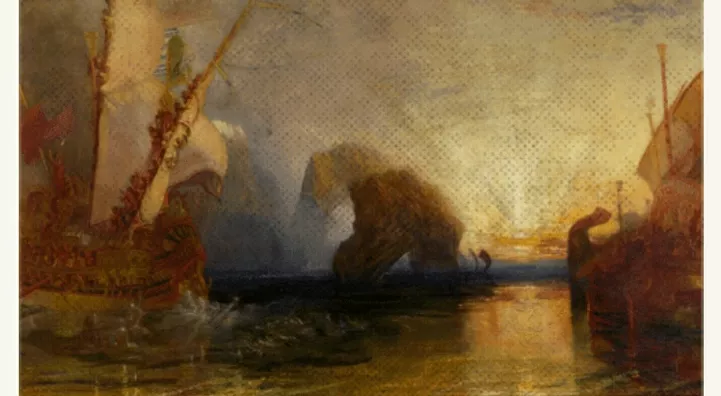Classic Poems
in: Books, Travel & Leisure
AoM Team • June 12, 2017 Last updated: February 15, 2019
20 Classic Poems Every Man Should Read
20 poems every man should read | young man leaning against a tree reading
Editor’s note: This article was written through a collaboration between C. Daniel Motley and the AoM Team.
Matthew Arnold, a Victorian poet, once claimed, “The crown of literature is poetry,” and if our neglect of poetry is any indication, the crown is rusting. While books sales fluctuate from year to year, fewer and fewer publishing houses are printing volumes of poetry. The demand for poets and their poems has ebbed.
However, we do ourselves a great disservice when we neglect the reading of poetry. John Adams, one of the founding fathers of the United States, commended poetry to his son John Quincy. Both Abraham Lincoln and Theodore Roosevelt committed their favorite poems to memory. Ancient kings were expected to produce poetry while also being versed in warfare and statecraft. That poetry has fallen out of favor among men in the 21st century is a recent trend rather than the norm.
To help remedy this, we have compiled a list of 20 classic poems that every man should read. Spanning the past two thousand years, the poems on this list represent some of the best works of poetry ever composed. But don’t worry—they were selected for both their brevity and ease of application. Some are about striving to overcome, others about romantic love, and still others about patriotism. Whether you’ve been reading poetry for years or haven’t read a single line since high school, these poems are sure to inspire and delight you.
1. “Ulysses” by Alfred, Lord Tennyson
ulysses poem alfred lord tennyson to strive to seek to find and not to yield
Tennyson, poet emeritus of England during the latter half of the 19th century, has composed a number of classic poems that deserve careful reading. “Ulysses,” possibly his most anthologized poem, begins at the end of Odysseus’ life after the events of Homer’s Odyssey. Tennyson depicts the desire of a man wanting to set out on new adventures and see new sights, even as his life is passing into twilight. Ulysses’ memorable phrases will encourage even the most settled soul to strike out and start something new.
Read “Ulysses” here.
2. “If–” by Rudyard Kipling
if poem by rudyard kipling quote
Literature is filled with examples of fathers passing their wisdom down to their sons, from the biblical Book of Proverbs to Ta Nehisi Coates’ Between the World and Me. While not everyone had a father to teach them life lessons, Kipling’s most read poem provides an education in living that anyone can benefit from. Soldiers and athletes have drawn from its wisdom, and boys (and men!) have committed its lines to memory for over a century. A celebration of the British “stiff upper lip,” this Victorian classic is worth meditating on every so often as a reminder of the virtues and actions that make up a life well-lived.
Read “If–” here.
3. “Sailing to Byzantium” by W. B. Yeats
sailing to byzantium poem that is no country for old men
Socrates, speaking to a friend, once asked, “Is life harder at the end?” W.B. Yeats’ meditation on adolescence and what it means to grow old is a salve for world-weary souls. Writing near the end of his life, Yeats confesses that, although his body wastes away, his desire for what is good will not cease. Yeats’ vision for what is “true, good, and beautiful” reminds us that youth and vitality are ultimately about how one sees the world and not about age. Filled with beautiful imagery, “Sailing to Byzantium” offers a corrective to our modern obsession with chasing the phantom of eternal youth.
Read “Sailing to Byzantium” here.
4. Sonnet 29 by William Shakespeare
sonnet 29 by william shakespeare
No list of poems is complete without the Bard himself. Known primarily for his plays, universally accepted as some of the best works in world literature, Shakespeare was also a poet, composing over 150 sonnets in his lifetime. Sonnet 29 is a lamentation on the loss of fame and fortune but ends with a meditation on the love that he has for his beloved. Works such as It’s a Wonderful Life echo the themes in Shakespeare’s Sonnet, showing us that the company of loved ones far outweighs all the riches that the world offers.
Read Sonnet 29 here.
5. “Invictus” by William Ernest Henley
invictus poem by william ernest henley captain of my soul
We’re not promised a life absent trials and suffering. While horrific events have sidelined many men, William Ernest Henley refused to be crushed on account of hardship. As a young man he contracted tuberculosis of the bone, which resulted in the amputation of the lower part of one of his legs. The disease flared up again in Henley’s twenties, compromising his other good leg, which doctors also wished to amputate. Henley successfully fought to save the leg, and while enduring a three-year hospitalization, he wrote “Invictus” — a stirring charge to remember that we are not merely given over to our fates. While life can be “nasty, brutish, and short,” we cannot sit idle while waves crash against us. A product of Victorian stoicism, and lived struggle, Henley’s poem is a clarion call to resist and persevere through the hardest of trials.
Read “Invictus” here.
6. “Mending Wall” by Robert Frost
mending wall poem by robert frost he is all pine
Robert Frost once told John F. Kennedy that “Poetry and power is the formula for another Augustan Age.” If that is the case, then Frost brought both to bear in this poem about two neighbors rebuilding a fence between their property during a cold winter in New England. A story told in blank verse, Frost critiques the phrase that he attributes to the other man in the story, “Good fences make good neighbors.” Dedicated to neighborliness and good will towards others, Frost’s work is a helpful tonic against 21st century individualism and selfishness.
Read “Mending Wall” here.
7. “Pion
© Writeroftheuniverse




